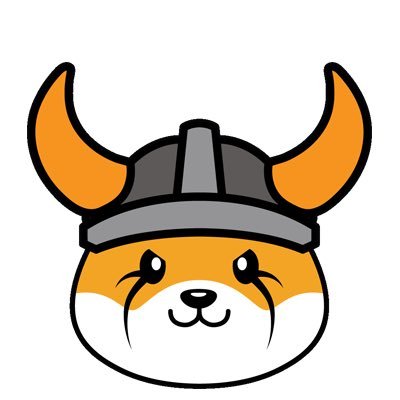Daily Report |Vitalik: The most challenging aspect of creating a "singleton" app using blockchain and cryptocurrency technology; Meme coin Floki has restricted Hong Kong users from accessing its staking program
Organizer: Luan Peng, ChainCatcher
"What Important Events Happened in the Last 24 Hours"
1. Vitalik: Creating a 'singleton' APP using blockchain and crypto technology is the most challenging
According to ChainCatcher, Ethereum co-founder Vitalik Buterin published a new blog titled "Prospects and Challenges of Crypto + AI Applications." There are many ways to classify artificial intelligence, and Vitalik categorizes it as follows:
AI as a game participant [highest feasibility]: AI that participates in mechanisms where the ultimate source of incentives is a protocol with human input.
AI as a game interface [great potential, but risky]: AI helps users understand the crypto world around them and ensures their actions (i.e., signing information and transactions) align with their intentions, preventing deception or fraud.
AI as game rules [proceed with caution]: Blockchain, DAOs, and similar mechanisms directly invoke AI, such as "AI judges."
AI as game objectives [longer-term, but intriguing]: The goal of designing blockchain, DAOs, and similar mechanisms is to build and maintain an AI that can be used for other purposes, leveraging crypto bits to better incentivize training or prevent AI from leaking private data or being misused.
The most challenging application is attempting to create a "singleton" application using blockchain and crypto technology: a decentralized, trustworthy AI that certain applications will rely on to achieve specific purposes. These applications have significant potential in functionality and enhancing AI security, avoiding the centralized risks associated with mainstream methods of addressing the issue. However, there are many ways the underlying assumptions could fail; thus, caution is warranted, especially when deploying these applications in high-value and high-risk environments. (Source link)
2. Bitcoin DEX project Portal completes $34 million seed funding, with participation from Coinbase Ventures, OKX Ventures, and others
According to ChainCatcher, The Block reported that the Bitcoin cross-chain DEX project Portal has completed a $34 million seed funding round, with investments from Coinbase Ventures, Arrington Capital, OKX Ventures, and Gate.io Ventures.
It is reported that Portal is a cross-chain atomic swap protocol based on Bitcoin. Its two main products are a decentralized trading platform and a wallet. The funding structure is said to be a combination of a Simple Agreement for Future Equity (SAFE) and convertible notes. (Source link)
3. Meme coin Floki restricts Hong Kong users from accessing its staking program
According to ChainCatcher, The Block reported that the Hong Kong Securities and Futures Commission issued a warning to the meme coin Floki last Friday, labeling its high-yield staking products as suspicious and unauthorized.
The Floki team responded by stating that it offers high returns by allocating most of the token supply to stakers. The current team has taken measures to block Hong Kong users from accessing Floki and TokenFi staking programs.
Additionally, Floki has halted its offline marketing activities in Hong Kong ahead of a planned launch in December 2023.
It is reported that both the Floki staking program and the TokenFi staking program claim to offer annual returns of over 30% to 100%. (Source link)
4. Starknet will conduct stress testing on the Starknet Goerli testnet today at 17:00
According to ChainCatcher, Starknet's official announcement states that a stress test will be conducted on the Starknet Goerli testnet. The test will start at 17:00 and is expected to last several hours. This test may cause congestion on the Starknet Goerli testnet, potentially leading to longer wait times for executing transactions on the testnet. The test will only take place on the Starknet Goerli testnet. Other networks, including the mainnet and Sepolia testnet, will not be affected. (Source link)
"What Interesting Articles Are Worth Reading in the Last 24 Hours"
Since integrating the Ordinals protocol, OKX has been actively involved in building the Bitcoin ecosystem infrastructure. Yesterday, OKX announced that it will integrate the SRC-20 standard into the OKX Web3 wallet in early February, allowing users to view and transfer SRC-20 inscriptions. Additionally, the development team will begin integrating ARC-20, DRC-20, and Runealpha protocols by the end of February. During this period, the OKX MarketPlace will gradually launch corresponding sections for ARC-20, Runealpha, and DRC-20, providing users with convenient inscription trading features.
As of now, the OKX Web3 wallet serves as a comprehensive platform for the Bitcoin ecosystem and is also the largest trading market for BRC-20 inscriptions and BTC NFTs. Behind this is OKX's commitment to becoming a one-stop inscription ecosystem in the Web3 industry, offering users richer and more convenient services. This article outlines OKX's latest developments in building the Bitcoin ecosystem and its thoughts and plans for the future development of the Bitcoin ecosystem.
2. “How Did Solana, Once Surrounded by Challenges, Make a Comeback?”
In 2022, as the topics surrounding SBF and the FTX platform surged, Solana also became a hot public chain in the crypto industry. However, the collapse of FTX nearly brought down the entire Solana ecosystem.
The price of SOL plummeted from $236 to $13 within weeks. Investment institutions advised startups not to choose Solana and instead build on the Ethereum Virtual Machine (EVM). Subsequently, some well-known projects migrated from Solana to other chains. However, a year later, as shown in the chart below, Solana rebounded, surpassing its peers.
3. “Metrics Ventures Research Report: Will Gelato Experience a New Surge in the RaaS Track?”
Before studying the Gelato project itself, it is necessary to first recognize the overall importance and development prospects of the RaaS business.
**First, the demand for scalability still exists, and scalability remains a key technology for achieving Web3 mass adoption.** Although existing Layer 2 solutions have initially addressed the scalability demand, Dapps still compete for blockspace, especially for transaction-heavy use cases (particularly gaming and social finance), where significantly increased transaction fees and longer wait times continue to affect user experience. During bull markets, when transaction volumes surge, the demand for scalability will further increase. In fact, the continuously growing Total Value Locked (TVL) also reflects the market's demand for Layer 2, which has maintained rapid growth since 2023.













